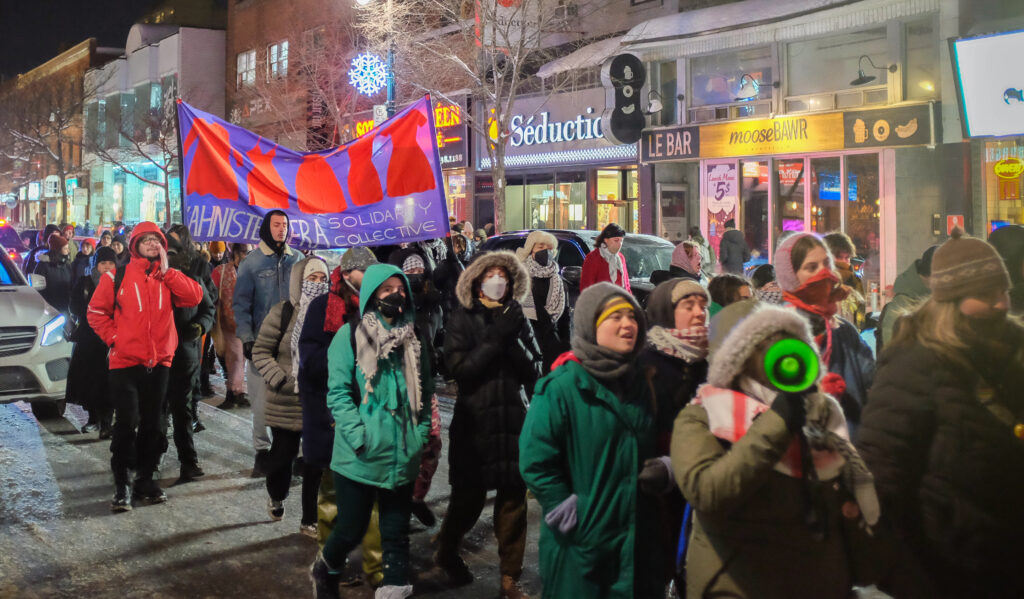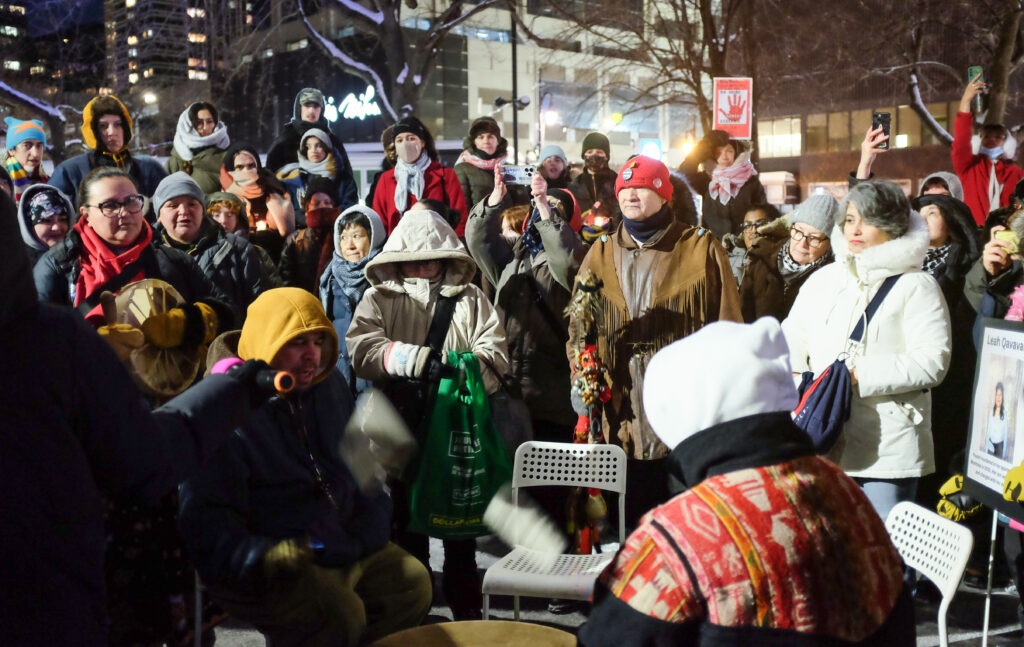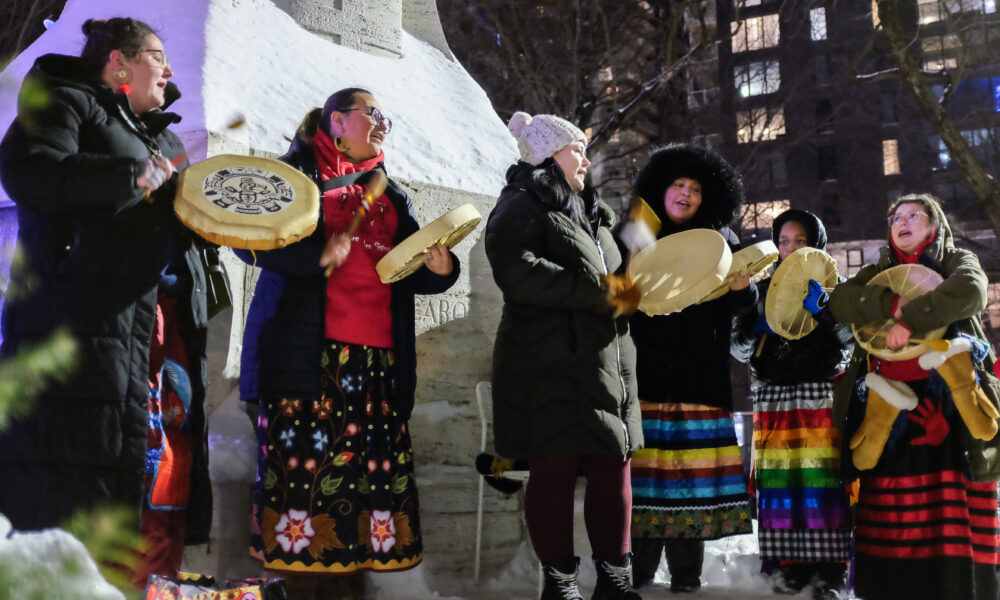Content warning: Mentions of murder and violence.
The Native Women’s Shelter of Montreal (NWSM) and Concordia’s Centre for Gender Advocacy (CGA) hosted the No More Lost Sisters march for the National Day of Awareness/Action for Missing and Murdered Indigenous Women, Girls, and Two Spirit People (MMIWG2S+) on Feb. 14. Protestors walked in -10° C weather to raise awareness about the disproportionately high rates of violence committed against Indigenous women, girls, and two-spirit people, and the low conviction rates for their murderers.
The march began at Cabot Square at 6 p.m. and ended at Place du Canada at around 8 p.m.. According to speaker Kevin Deer, the goal of this event was to inform onlookers of the historic and ongoing violence MMIWG2S+ people face in Canada, where Indigenous women are 16 times more likely to go missing than white women.
Before the march, activist Ellen Gabriel addressed the crowd, discussing the central role protests and demonstrations play in creating systemic change within Canada’s policing system.
“To all the people who have lost loved ones because of racism, because of sexism, we are here to show our support to anyone that has experienced this type of violence,” Gabriel said. “If we don’t stand up and rise up against imperial fascists, we will lose our rights.”
Gabriel has been a prominent advocate for over 30 years, acting as the Haudenosaunee’s spokesperson during the 1990 Kanesatake Resistance: A 78-day stand-off between Mohawk communities and the town of Oka, who sought to build a golf course on Indigenous burial grounds.
At this march, Gabriel asked that the media and the Canadian government stop blaming murder victims for their deaths, criticizing the press for labelling missing women as “partiers.”
“Let’s bring to light this issue of violence that we all are responsible to fight against,“ Gabriel said. “I hope that one day, men will see that violence against women is not a woman’s issue, it’s a man’s issue.”

McGill’s Indigenous Student Alliance (ISA) also emphasized the responsibility of the media in pursuing justice in a written statement to The Tribune.
“Our women aren’t only the targets of this violence at higher rates than the national average, but are sought out by organized crime and institutionalized networks,” the ISA wrote. “The media’s reluctance in connecting these organized networks (sex-trafficking) to the violence of Indigenous women, girls, and two-spirit people capacitates the way in which this violence is not only perceived by the settler state and its citizens, but also the way [justice evades] the deeply ingrained injustices that allow and promote this violence.”
The ISA encouraged non-Indigenous McGill students to show their solidarity with MMIWG2S+ by supporting the Red Dress Alert initiative, which the federal government agreed to develop in May 2024. The Red Dress Alert is akin to an AMBER Alert system, pointing the public to the last known location and appearance of MMIWG2S+.

Mike Turner was also present at the march. His daughter, 24-year-old Chelsea Poorman, went missing in 2020. Despite her mother reporting Poorman as missing to authorities the next day, Turner reported that the police did not start investigating her disappearance until 10 days later. Police discovered parts of her body in 2022, but today, neither her killer nor the entirety of her remains have been found. Turner told The Tribune that the press has a duty to report on cases like Poorman’s, which go under-investigated and neglected by police due to the victim’s race.
“The media’s role has been insignificant when it can be extremely significant,” Turner said. “Why can’t they run ads for missing people? […] There’s no reason why this isn’t front-page every single day. If that were the case, a lot more could change.”
When the march concluded at Place du Canada, Gabriel thanked the crowd for their participation on Valentine’s Day, and spoke about the integral role public protests play in raising awareness for MMIWG2S+ who are neglected by the Canadian government.
“On Love Day, although this cause is heartbreaking, I have to say I’ve never seen so many people pour love back into the hearts of women,” Gabriel said.







